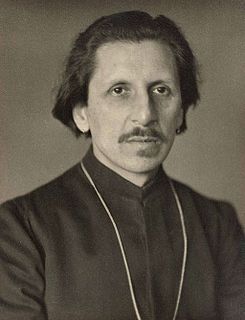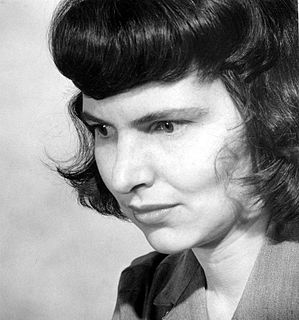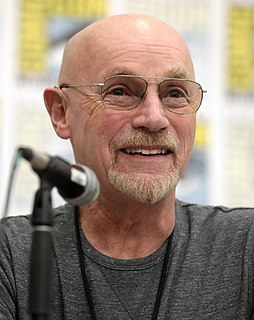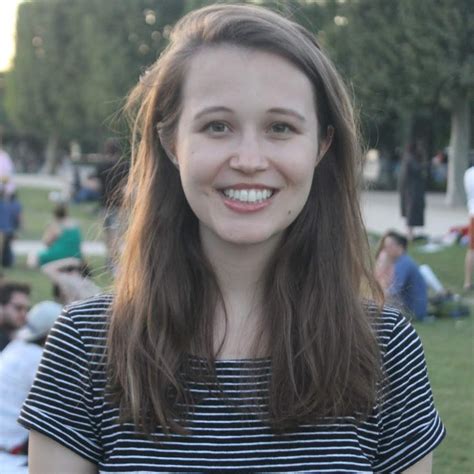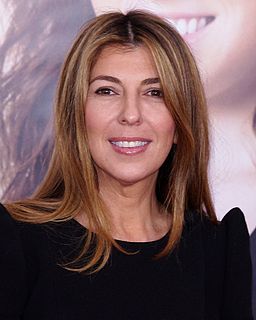A Quote by Phoebe Gloeckner
Comics are a "young" art form, and there is much confusion as to how to treat them. Images have more immediate impact than words, and it is not every reader who can be convinced to relax into experiencing the work for what it is - not words and pictures, but a different form, where the narrative is propelled by the blending of image, word and sequence, and where no element can be extricated and have the same meaning by itself. When this art is shown in a gallery, its "thingness" is called to attention, it is no longer experienced as "story," but rather as an artifact of the artist's process.
Quote Topics
Art
Art Form
Art Is
Artist
Attention
Blending
Comics
Confusion
Convinced
Different
Element
Every
Experienced
Experiencing
Form
Gallery
How
Image
Images
Immediate
Impact
Itself
Longer
Meaning
More
Much
Narrative
Pictures
Process
Rather
Reader
Relax
Same
Sequence
Shown
Story
Than
Them
Treat
Word
Words
Work
Young
Related Quotes
At birth we begin to discover that shapes, sounds, lights, and textures have meaning. Long before we learn to talk, sounds and images form the world we live in. All our lives, that world is more immediate than words and difficult to articulate. Photography, reflecting those images with uncanny accuracy, evokes their associations and our instant conviction. The art of the photographer lies in using those connotations, as a poet uses the connotations of words and a musician the tonal connotations of sounds.
Therefore, the two processes, that of science and that of art, are not very different. Both science and art form in the course of the centuries a human language by which we can speak about the more remote parts of reality, and the coherent sets of concepts as well as the different styles of art are different words or groups of words in this language.
When I started in the comic book business, 'Art Of' books were strictly the provenance of the greats, like Rembrandt and Da Vinci. But times change, and so do attitudes. Now the comic is considered an art form, and I hope 'A Life in Words and Pictures' contributes a little to that art form's history.
Comics have the page as their real estate so you've only got that space to tell the story on. But the other thing only comics do is to have the words and pictures being simultaneous. Your brain is flicking between them and you can put in some excellent narrative devices; you can off-set things and juxtapose things between word and image.
I don't really have any great interest in writing for movies. Comics, to me, is a much more promising field. There's still a lot of ground to be broken in comics, whereas movies, to a degree... I don't know. They're a wonderful art form, but they're not my favorite art form. They might not even be in the top five of my favorite art forms.
I believe that magic is art, and that art, whether that be music, writing, sculpture, or any other form, is literally magic. Art is, like magic, the science of manipulating symbols, words or images, to achieve changes in consciousness… Indeed to cast a spell is simply to spell, to manipulate words, to change peoples consciousness, and this is why I believe that an artist or writer is the closest thing in the contemporary world to a shaman.
I expect to see the coming decades transform the planet into an art form; the new man, linked in a cosmic harmony that transcends time and space, will sensuously caress and mold and pattern every facet of the terrestrial artifact as if it were a work of art, and man himself will become an organic art form.
Narrative, fiction filmmaking is the culmination of several art forms: theater, art history, architecture. Whereas doc filmmaking is more pure cinema, like cinema verité is film in its purest form. You're taking random images and creating meaning out of random images, telling a story, getting meaning, capturing something that's real, that's really happening, and render this celluloid sculpture of this real thing. That's what really separates the power of doc filmmaking from fiction.
I did all the stuff that people do - film, performance, photography, pictures and words, words and pictures. In retrospect, I was trying to find some way to put things - meaning images and forms - together that highlighted some idea of what was underneath the surface of an image, what determined how something was seen.

